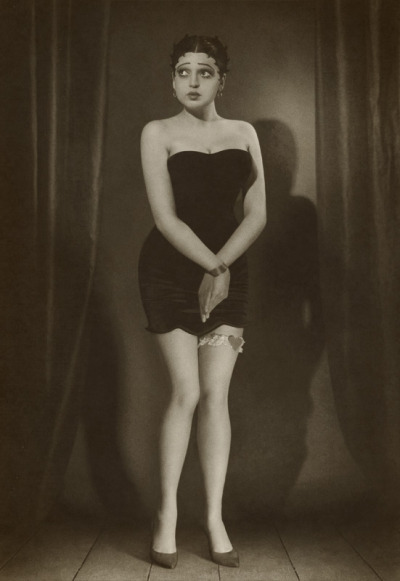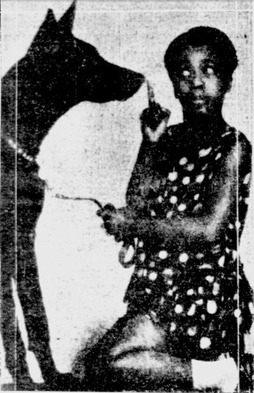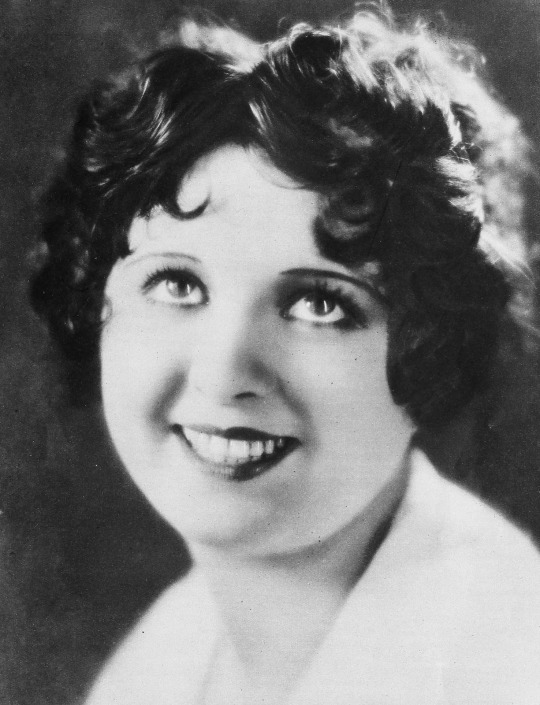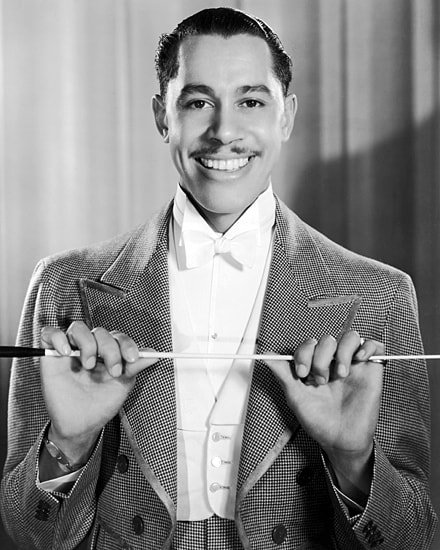#and for the record Fleischer Studios' cartoons were not free of racism
Explore tagged Tumblr posts
Text
Did you know!
Betty Boop was based on an African American jazz singer named Esther Jones, pictured below!

Despite this, Betty Boop has been consistently portrayed as white, and Esther Jones' likeness was used without her permission.
And if you've actually read this far and not just nodded and scrolled on, congratulations! I was lying to you, that entire thing was bunk.

Esther Jones, better known as Baby Esther or Lil Esther, was only a child when Betty Boop made her debut, her exact age is a mystery due to a lack of records. That image I showed you before? That's of a model named Olya P. for the magazine Retro Atelier in 2008. Also Olya’s not even black, she’s white and either Russian or Ukrainian.

Betty Boop was indeed visually based off a jazz singer and actress, but it was Helen Kane, a white woman. Clara Bow, another white singer, is also sometimes cited as an inspiration, but with less evidence.
It was Helen Kane who found out her likeness was used without permission and filed a lawsuit against Max Fleischer and Fleischer Studios for it. While he would later wholeheartedly admit it, he denied the likeness as part of his testimonies. In the process, he argued that Kane had taken most of her songs and style from Baby Esther. However, according to Wikipedia it’s possible a lot of the evidence for that was fabricated in an attempt to discredit Kane.
So to be more precise, Betty Boop was based off a white woman who might have based her image off a little black girl.

Also, the topic of Betty Boop's intended race gets a little silly regardless given that she was first conceptualized as an anthropomorphic poodle. While it's not exactly unheard of for the 1930s, I don't think they were really focusing on coding her as a specific race at that moment.

The cartoon Minnie the Moocher (remember this) would even depict Betty Boop as coming from a German immigrant family. Many speculated she was even Jewish due to this as well as the Fleischer brothers and her voice actress Mae Questel both being Jewish, but Benjamin Ivry of Forward pointed out that her family's meals were not Kosher so this was unlikely.
Now you might be thinking; okay but what's the harm in portraying Betty Boop as black? Can’t black people reclaim this one character for themselves? And honestly, I kinda agree. Personally I think Betty Boop is one of those characters that can be ANY race, not just white or black, given her ambiguous and stylized features. I love seeing black women cosplaying Betty Boop or her being portrayed as black in art.
However, the reason I bring this up is because I personally think false or misleading information does not make for good representation. Especially when it leads to situations where artists have to explain themselves for giving Betty Boop light skin when the reason cited otherwise is blatant misinformation. Though thankfully the one interaction I have had about it before posting this was very polite.
Not to mention, this kind of thing maybe not necessarily buries but distracts from the very real contributions and accomplishments of black people in Betty Boop's history.
Let's talk Cab Calloway, for example.

Cab Calloway was a singer and bandleader acclaimed for mixing jazz with vaudeville. He was the first African American to sell one million copies of a single record, and collaborated with Fleicher Studios for three animations, Minnie the Moocher, Snow White, and The Old Man of the Mountain. In these, he would perform a song, the first and last even being directly named after his music, and he was even directly rotoscoped while dancing.


I can't find any sources for who approached who for these collaborations, but I feel its needless to say there's an inherent respect for Calloway and his work in these cartoons. For a black man in the 1930s. And they didn’t even hide it, Minnie the Moocher and The Old Man of the Mountain features live footage of Cab Calloway and his very visibly black band.
These cartoons bleed passion from both the singer and the animators. And if you’ll excuse the sidenote, I watched those cartoons as part of my research and even today his music is still absolutely enchanting.
And Calloway was not immune to racism just because of his success either. He and a friend, Felix H. Payne Jr. were even victims of police brutality by officer William E. Todd in 1945 when they were attempting to visit Lionel Hamptom at the whites-only Pla-Mor Ballroom.
His work matters. Betty Boop was only one small part of his career, the man did a lot in his time, but he brought something truly amazing to the table.
There are real people whose accomplishments deserve to be recognized, but I feel they often get pushed aside in the efforts to make up representation that was never actually there under the false belief that there was none in the first place.
Hell, this entire thing is a discredit to the real life of Esther Jones herself!
She was a literal child who’s date of birth and especially death are unknown. She gained fame in her hometown Chicago which led to her becoming an international celebrity, touring Europe as an honored representation of African Americans alongside Josephine Hall. Then she basically retired as a teenager and disappeared from the public eye.
And what is her memory nowadays? As a sexy flapper that supposedly inspired Betty Boop’s creation.

Even knowing this was false, I had to fight back so much misinformation while making this. This photo right here? I was led to believe this was a photo of an adult Esther Jones, but it’s not! We don’t have photos of her as an adult! This is a completely different, unidentified, woman photographed by James Van Der Zee!
And quite frankly, as a white woman I feel like a jerk having to be the one to tell black people that actually no Betty Boop was based on Helen Kane, not Esther Jones.
So in conclusion, STOP MAKING SHIT UP.
[Sources:
Betty Boop - Wikipedia
Cab Calloway - Wikipedia
Baby Esther - Wikipedia
Модель Оля | BETTY BOOP Wiki | Fandom
Dizzy Dishes (1930)
Minnie the Moocher (1932)
Snow White (1933)
The Old Man of the Mountain (1933)]
#if I got anything wrong in this I take full responsibility#the tough thing about trying to disprove misinformation is that you have to wade through so much of it to get the truth#so sources were also somewhat limited#but yeah this started as me doing research for my Call of Cthulhu investigator#and then my autism led me down a rabbithole#and for the record Fleischer Studios' cartoons were not free of racism#they apparently had less compared to other studios but still had offensive caricatures of black and native people#but I struggled to find exact sources for it so I didn't think it would be a good idea to include#I haven't seen every talkartoon and mostly just watched the ones I mentioned#Old Cartoons#Betty Boop#Esther Jones#Baby Esther#Helen Kane#Cab Calloway#Max Fleischer#Fleischer Studios#Essay#my post
34 notes
·
View notes